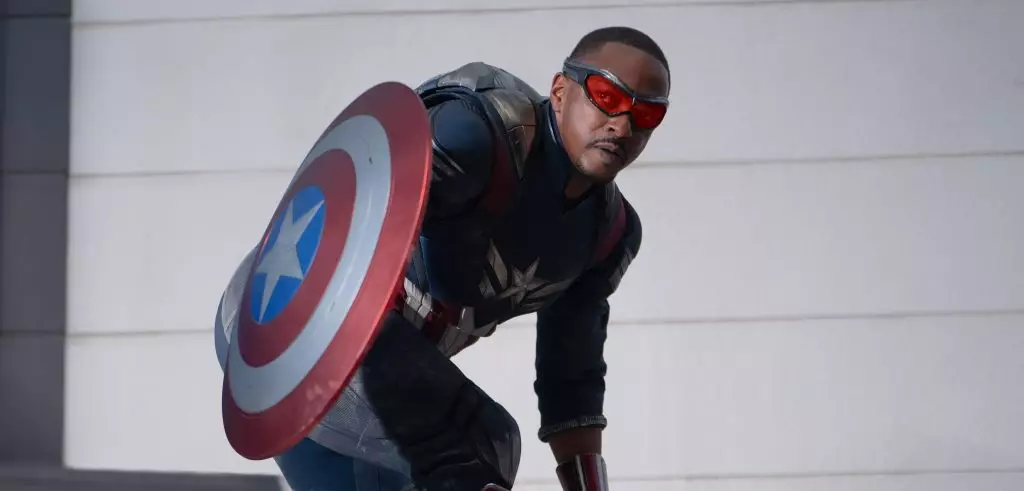The release of Disney/Marvel Studios’ latest installment, *Captain America: Brave New World*, has ignited both curiosity and skepticism among audiences. Despite weather-related challenges in Los Angeles and the Northeast, initial box office projections indicate a robust turnout, with the film expected to gross around $12 million from Thursday previews alone, beginning as early as 2 PM. This article examines how this film stacks up against its Marvel Cinematic Universe (MCU) peers and explores the underlying sentiments expressed by audiences and critics alike.
Comparatively, *Brave New World* has opened relatively strong, outperforming *Captain America: The Winter Soldier* (2014), which garnered $10.2 million in previews en route to a $95 million debut. However, it’s notably below the $17.5 million amassed by the most recent MCU release, *Ant-Man and the Wasp: Quantumania*, which opened to a remarkable $106.1 million over the Presidents Day weekend. Current projections anticipate a three-day opening of around $80 million and a four-day total of approximately $94 million for *Brave New World*. While these numbers suggest a solid reception, they underline a trend where audiences may be more selective about their viewings.
*Brave New World* presents itself as a grounded action film, eschewing the typical multiverse spectacles that have characterized recent MCU entries. This stylistic commitment may resonate with some die-hard fans craving a return to the series’ espionage roots, as established in the original *Winter Soldier*. Nevertheless, the narrative’s focus on new characters, including the much-anticipated Red Hulk, raises questions. Critics have expressed moderate concerns regarding the film, assigning it a grim 52% rating on Rotten Tomatoes. In contrast, audience feedback appears more favorable, with a respectable score of 82%. This divergence might reveal a disconnect between critical appraisal and fan excitement, emphasizing that commercial success does not necessarily correlate with critical acclaim.
In today’s digital age, social media prowess plays a pivotal role in a film’s financial success. According to analytics from RelishMix, *Brave New World* boasts a social media reach of under 600 million—a figure that is notably below the average for superhero movies at large. By comparison, mega-hits like *Deadpool* and *Thor: Love and Thunder* each commanded impressive online presences of over a billion followers prior to their releases. This deficit suggests a growing concern for Marvel, particularly as enthusiasm appears to be diminishing among potential audiences.
Among the main cast, Anthony Mackie, taking over the titular shield, logs 5.4 million fans across his platforms. While Liv Tyler contributes her own 7.2 million followers, and Giancarlo Esposito brings in 4 million, there’s a noticeable absence of broader social outreach that might galvanize excitement. This restrained engagement inevitably impacts the narrative surrounding the film and its characters. While some fans are eager about Mackie’s ascension to the lead role, others express trepidation regarding the film’s apparent identity crisis.
Online discussions surrounding *Brave New World* reflect a kaleidoscope of attitudes. While some fans express excitement, others voice their disillusionment with the MCU’s current trajectory. Comments like, “I remember a time when I used to get hyped for a Marvel film,” underscore a nostalgia tinged with dissatisfaction. Many viewers are curious yet cautious; sentiments of skepticism regarding the movie’s potential for success echo through various social media platforms. As a result, audiences find themselves straddling the line between anticipation and apprehension.
As *Captain America: Brave New World* embarks on its cinematic journey, it does so amidst a backdrop of fluctuating expectations. While it has managed to carve out a respectable opening, the performance metrics highlight an underlying fatigue among audiences who may feel torn between their loyalty to the franchise and their desire for a more engaging narrative. The shades of disappointment as well as excitement in social media conversations signal that the road ahead for Marvel may require more than just familiar faces; it necessitates an innovative approach to storytelling that can reignite the same passion audiences once felt. Ultimately, *Brave New World* serves as both a continuation and a critical juncture for the Marvel universe, posing the question: how will the franchise adapt in an ever-changing cinematic landscape?

